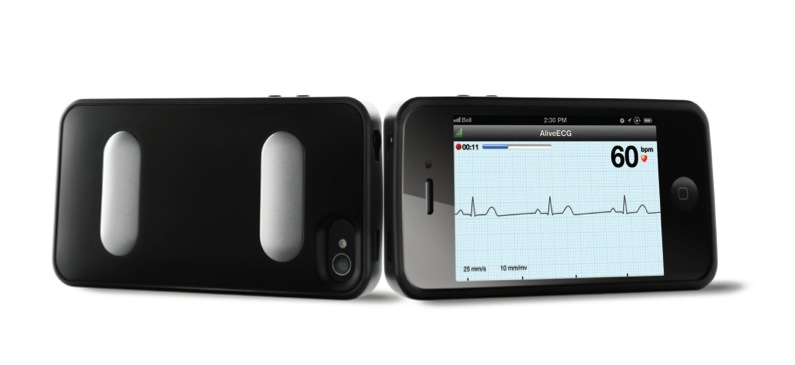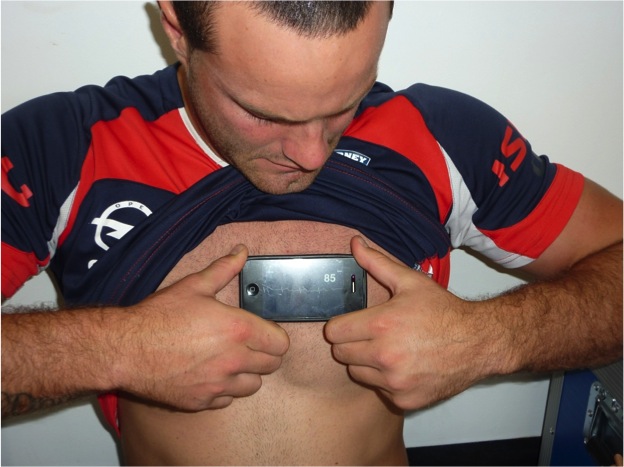Cardiology is a hot topic in sports medicine at the moment and also remains of major interest in the general medical field. As an example, Jessica Orchard received the Royal Australian College of General Practitioners (RACGP) National Best General Practice Research Article in Australian Family Physician (AFP) Award, 2015. Together with co-authors from The University of Sydney, Jessica was lead author on “iPhone ECG screening by practice nurses and receptionists for atrial fibrillation in general practice: the GP-SEARCH qualitative pilot study”, Open Access in Australian Family Physician, 2014 [1].

The GP-SEARCH pilot study demonstrates a highly practical way to introduce modern technology (iPhone ECG screening) into general practice screening for atrial fibrillation, a common heart rhythm problem in older adults. The study highlights the approach’s feasibility both in terms of available technology, and practice nurses’ suitability for screening delivery. Obtaining a single lead ECG (usually lead I) rhythm trace on a smartphone screen (using an attached cover) takes less than a minute.
Screening application in Sports Medicine

Jessica is currently investigating the utility of the same device (an iPhone single lead ECG App that can take a rhythm reading in under a minute) for diagnosis and screening in sports medicine settings. Cardiac conditions are very topical in sports medicine with the sad news of regular arrests and some sudden deaths in high level athletes around the world, the latest of which was Rugby League Welsh international Danny Jones 2 weeks ago. Jessica also blogged for BJSM on the advances in preventing sudden cardiac death at the IOC Prevention of Injury and Illness in Sport at Monaco in April 2014. Both rhythm disorders and outlet disorders can predispose to sudden death in sports and the single lead ECG is particularly useful at quickly assessing rhythm. Some arrhythmias that can lead to symptoms (including collapse) on the sporting field are very transient and obtaining a rhythm trace quickly is extremely valuable.
Related Research
With both a public health and law background Jessica has contributed two first author BJSM papers on the topics of:
- Reforming the bidding process for major sporting events to promote physical activity [2] and;
- Preventing radiation overexposure in sports medicine diagnostic investigations [3].
She was also a co-author on a recent cardiology paper protocol also using the iPhone ECG in BMJ Open [4].
References
- Orchard, J., Freedman, S., Lowres, N., Peiris, D., Neubeck, L. (2014). iPhone ECG screening by practice nurses and receptionists for atrial fibrillation in general practice: the GP-SEARCH qualitative pilot study. Australian Family Physician, 43(5), 315-319.
- Orchard, J., Orchard, J., Driscoll, T. (2010). Comparison of sports medicine, public health and exercise promotion between bidding countries for the FIFA World Cup in 2018. British Journal of Sports Medicine, 44(9), 631-636.
- Orchard, J., Orchard, J., Grenfell, T., Mitchell, A. (2014). Ionising radiation: three game-changing studies for imaging in sports medicine. British Journal of Sports Medicine, 48(8), 677-678.
- Lowres, N., Freedman, B., Gallagher, R., Kirkness, A., Marshman, D., Orchard, J., Neubeck, A. (2015). Identifying postoperative atrial fibrillation in cardiac surgical patients posthospital discharge, using iPhone ECG: A study protocol. BMJ Open, 5(1), 1-5.